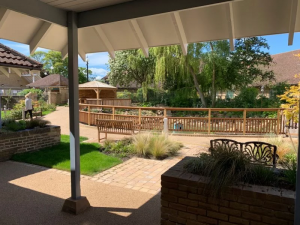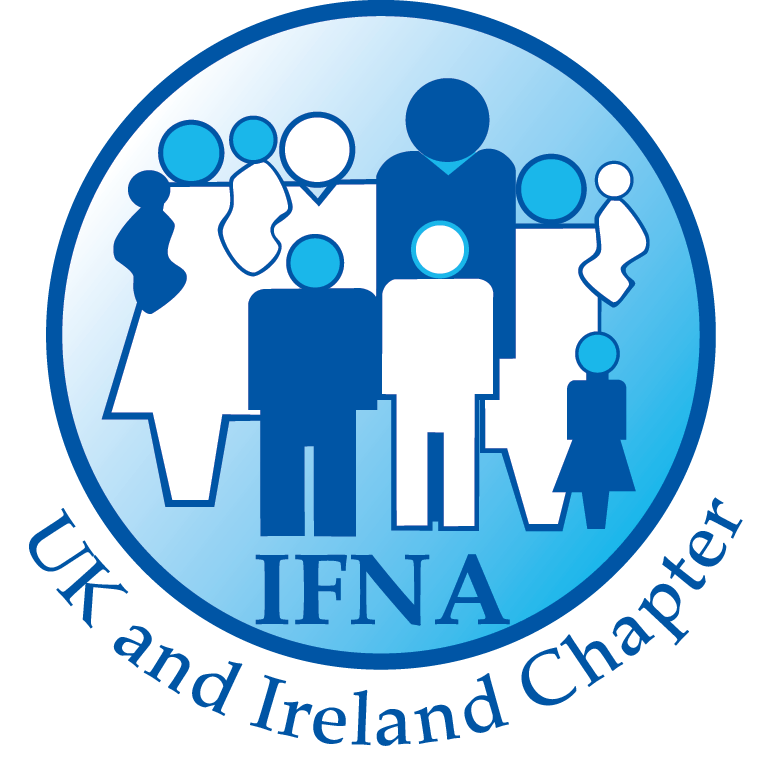Dr Christine English
St Oswald’s hospice staff, that I work with as a trustee, have won a number of prestigious awards recently, including Hospice UK Innovation in Care, Charity Retailer of the Year, and Northern Power Transformational Leadership. However, their latest award made me really, really smile. Why?
Well, it was a Lord Mayor’s design award and the reason why it made me smile so much was this was for the development of a beautiful ‘family room’ and garden at the hospice. It was designed and decorated as a lovely space for families to spend time together and to create special events and memories for the patients and families, such as renewal of wedding vows, date nights, spa days, movie nights and afternoon teas. For me, as an enthusiastic advocate of family nursing, I was particularly delighted that here was real recognition, built in bricks and mortar, of the importance of the ‘family’ within the hospice and being referred to as the ‘family room’ and garden. Let’s not forget that sometimes names and labels are very important.
IFNA has been promoting family nursing as being important to excellent care for many years now, and elsewhere on the IFNA – UK and Ireland Chapter website, we have provided resources about family and family nursing. Here is a quick reminder of some of the definitions of ‘family’ and ‘family nursing’:
“Any group of people related either biologically, emotionally, emotionally or legally” (McDaniel et al, 2009).
“Two or more individuals who depend on one another for emotional, physical and economic support. The members of the family are self-defined” (Kaakinen et al , 2018).
“The integration of nursing care to both the family as a whole and individual family members, with attention to relationships among members” (Denham, 2003; Friedman, Bowden, & Jones, 2003; Wright & Leahey, 2013).
Looking at these definitions, it is easy to see why end of life care provision has had to recognise the needs of family members as well as the individual patients at such difficult times. In fact, as Dr Kathryn Mannix (author and retired palliative care consultant) puts it in her recent book “With the end in mind“:
“Whether or not we are related to the people we hold most dear, dying is a ‘family affair.”
Certainly, for most people this is true, no matter how you define ‘family’, but despite a family focus in end of life care it seems unlikely that nurses in this field would identify their care as ‘family nursing’ or themselves as ‘family nurses’. Perhaps, in the UK and Ireland, this terminology is associated more with children and young people’s nursing or midwifery care rather than adult nursing, so nurses may more readily identify with ‘palliative care nurses/nursing’ or ‘hospice nurses/nursing’. So, you may wonder – does it really matter whether these nurses recognise the approach used as being family nursing or not? To be honest, I think it does matter – sometimes names and labels carry such important messages that need to be shared! Just like the hospice’s new ‘family room’.


